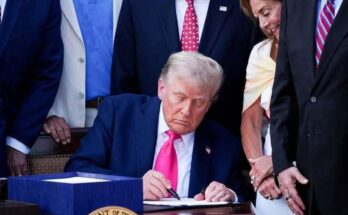
For many older adults, winding down at the end of the day can be surprisingly difficult. A busy mind, everyday worries, and changes in sleep patterns often make it harder to drift off peacefully. While there are countless sleep aids and remedies on the market, one simple, natural tradition is quietly gaining renewed appreciation: the soothing scent of bay leaves.
Used for generations in kitchens and home remedies, bay leaves offer more than flavor for a stew. Their subtle aroma has long been associated with relaxation, clarity, and a settled mind—qualities that can make bedtime feel a little more restful.
A Timeless Herb with Calming Potential
Bay leaves come from the Laurus nobilis tree, an aromatic plant with a long history in traditional wellness practices. Ancient cultures used it in rituals meant to promote peace and focus. Today, modern aromatherapy recognizes the gentle compounds in bay leaves—such as eucalyptol and linalool—which can help quiet mental tension and encourage a more relaxed state.
The effect isn’t overpowering. Instead, the fragrance is soft and comforting, making it a fitting choice for anyone who prefers natural, subtle aromas over stronger essential oils or perfumes.
Simple Ways to Use Bay Leaves at Bedtime
You don’t need complicated equipment or costly products to enjoy the calming scent of bay leaves. These easy methods can be added to almost any nightly routine:
1. Slip a Few Dried Leaves Under Your Pillow
This is one of the oldest traditions. The gentle scent released overnight encourages a sense of ease as you settle in. For many, the hint of fragrance becomes a signal to the body that it’s time to unwind.
2. Add Them to a Warm Bath
Simmer several bay leaves in a small pot of water, then pour the infused water into your bath. The warm steam carries the aroma, softly easing muscle tension and helping your mind quiet down. A warm bath alone is relaxing; the bay leaf essence adds a layer of calm.
3. Try an Aromatherapy Diffuser
If you enjoy diffusing scents in the evening, add lightly crushed bay leaves—or a small amount of bay leaf essential oil—to your diffuser. Allow the aroma to fill the bedroom during your wind-down time. The gentle scent creates an environment that feels peaceful and steady, especially helpful if your mind tends to race at night.
Supporting Better Sleep with Healthy Habits
Bay leaves work best when paired with good nighttime routines. A few small adjustments can make a big difference:
- Create a consistent bedtime and waking schedule
- Keep your bedroom cool, dark, and quiet
- Limit caffeine later in the day
- Practice slow breathing or a few minutes of quiet before getting into bed
These habits, combined with the calming scent of bay leaves, may transform your evenings into a more relaxed and reassuring time of day.
A Small Leaf with a Big Soothing Effect
Bay leaves may seem like an ordinary kitchen staple, but their soft, natural aroma can offer surprising comfort. Whether you tuck them under a pillow, enjoy them in a warm bath, or use them in a diffuser, they can help encourage a peaceful mind and a more restful night.
For anyone searching for simple, gentle ways to relax before bed, bay leaves offer an easy addition to a nightly routine—one that may help you sleep more soundly and wake feeling renewed.


